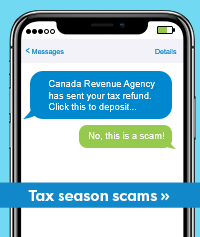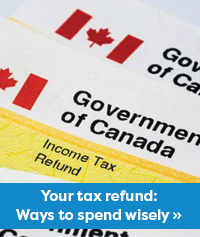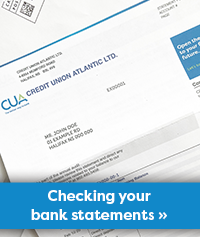Tax Tips For CERB Recipients

On March 25th, the Government of Canada announced a number of economic relief measures to help individuals, businesses and organizations experiencing financial hardship as a result of the global COVID-19 pandemic. Part of this response included creating the Canada Emergency Response Benefit (CERB), a taxable benefit of $500 per week, for up to 16 weeks, for eligible recipients.
Many Canadians began receiving payments via direct deposit in early April. The amount deposited was higher than some expected because no income tax deduction was taken at the time of payment. The CERB is a taxable benefit and therefore, anyone receiving this payment will eventually need to pay taxes on this amount.
For recipients, this means you will have to claim the CERB payments as income on your 2020 tax return and pay any taxes on this income when you file the return in 2021. In order to ensure you have the money to pay these taxes, it is recommended that you put 25-30% of the funds away in savings to avoid any potential surprises come tax time next year. Recognizing that may not be possible, the best thing anyone can do is to be aware of what might be coming down the road.
Calculating Tax Projections
If you do have the ability to put a portion of the CERB funds aside, consider the following to determine what portion of the funds will likely have to be paid in taxes, next year.- Determine your projected annual income:
What is your normal annual salary? ________________ Divide that amount by 12 (for monthly amount). ________________ Multiply that amount by 8 (for new annual amount). ________________ Add the $8,000 CERB onto that amount. ________________ Note: the above amount assumes the recipient will be employed at the normal salary for eight months of the year, receiving the CERB amount for the remaining four months. - Identify your tax bracket for 2020:
Federal taxes 15% on your first $48,535 of taxable income, plus 20% on the next $48,534 (total: $97,069), plus... (If your income is greater than $97,069, visit this website for the complete list). Nova Scotia taxes 8.79% on the first $29,590 of taxable income, plus 14.95% on taxable income over $29,590 up to $59,180, plus... (If your income is greater than $59,069, visit this website for complete list). - Combine the tax rates for a total tax range.
For example, if your total 2020 income is projected to be $28,000, you will pay 15% federally plus an additional 8.79% provincially, for a total tax rate of 23.79%. - Calculate the approximate CERB taxes.
Using the example in #3 and based on a total $8,000 CERB payment, $1,903.20 would be the required tax remittance. Keep in mind that the actual taxes owed will depend on an individual’s annual income as well as regular exemptions and contributions to savings programs such as RRSPs.
Filing Taxes for 2019
The Government of Canada has extended the filing due date for 2019 income tax returns for individuals and businesses as part of its response to COVID-19. Specifics include:- For Individuals: Filing 2019 taxes can be deferred until June 1, 2020 and any taxes owed will not be due until September 1, 2020.
- For Businesses: Corporations that have filing deadlines between March 18 and June 1, 2020 can defer filing until June 1 at the latest. As most businesses have a year-end of December 31st, this is not a change as the normal filing deadline is six months after year-end. Businesses are not required to pay corporate taxes until September 1, 2020.
Did you know?
CUA offers a broad array of products and services to ensure your banking experience is simple and stress-free, including preferred rates on tax services for individual, small business and non-profit members. As CUA’s tax services provider, I’d be pleased to be of assistance in preparing for or filing your tax returns. I would encourage you to book an appointment. We are fully operational, serving clients using phone, email and video platforms.Revised Nov. 1, 2021






